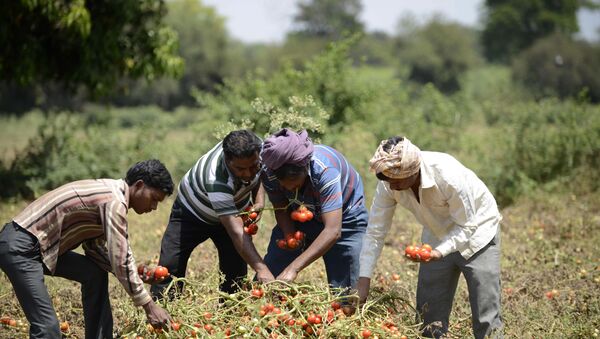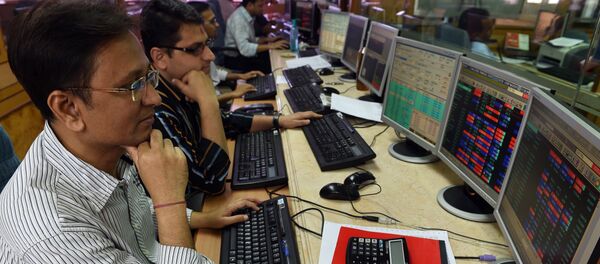New Delhi (Sputnik): The Election Manifesto of India's ruling Bharatiya Janata Party had envisaged growing India's economy to $5 trillion by the year 2025 from $2.8 trillion in 2018.
Certain media reports have suggested that Indian Finance Minister Arun Jaitley may not take up the office again due to poor health. However, the government has denied such reports as baseless.
According to Senior Business Journalist and author R.N. Bhaskar, in light of recent media reports, the finance minister clearly has a difficult task ahead; no matter who takes the helm at the Ministry of Finance, there are certain economic challenges India needs to address.
READ MORE:China May Disrupt Indian Market Amid Trade Tensions With the US — Fitch
"Basically, I feel there is a slowdown in the economy. The Index of Industrial Production stats have vindicated that. There is also a slowdown in capital formation in the country. It indicates that no new investments are taking place, no new industries are coming up and hence there are no new jobs," he added.
Reports published by Ind-Ra, an Indian ratings and research agency, have suggested that FY2019 GDP growth will total 6.9%, less than the earlier advanced estimate of 7.0%. Reported growth in FY2018 was 7.2%.
To fix the slowdown in economic growth, Bhaskar suggested that numerous steps need to be taken.
"If the new government really wants to arrest the economic slowdown, it needs to create more jobs. For creating jobs, I would suggest some crucial steps. There is an untapped potential in the solar sector. We need to take full advantage of the solar sector. We need to develop our rooftop solar infrastructure," he said.
The agrarian, or agricultural, crisis was one of the primary issues taken up by the opposition parties in their bid to corner the BJP-led National Democratic Alliance government. The previous BJP-led government came up with the policy of providing Rs. 6,000 (86 USD) in annual farmer support to 120 million small and marginal farmers in India.
While many BJP critics called this as a "populist" move, Bhaskar believes otherwise. "I don't believe that the Modi government was "populist" in its policies. The steps that were taken were the need of the hour. The agriculture sector was in disarray and the farmers' support income was essential."
READ MORE:Analyst Outlines Three Possible Factors Behind Modi's BJP Re-Election Success
Tarun Kumar, a Delhi-based economist, believes that while the agrarian crisis did affect the earlier Modi government's economic progress, there were other factors too which needed to be sorted out.
"The Modi government 2.0 will not have some of the challenges which they faced in the first term. In the first term the government's focus was on repairing the stressed banking system and undertaking structural economic resets. There was pressure to control India's fiscal deficit (combined) with a tight monetary policy and they have done substantially well to address those issues," Kumar said.
"However in their second term, I would expect the BJP-led government to step up infrastructure expenditure and create more jobs by trying to bring in more foreign investments. The only way to go about it is to ease the process by which foreign investors spread their business in India by reducing the bureaucratic red-tapism," he added.
Narendra Modi is scheduled to take the oath of office and secrecy as the Prime Minister of India for his second term on 30 May.
Views and opinions expressed in this article are those of the speakers and do not necessarily reflect Sputnik's position.




